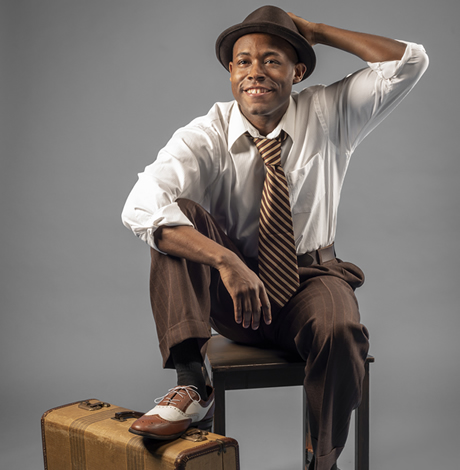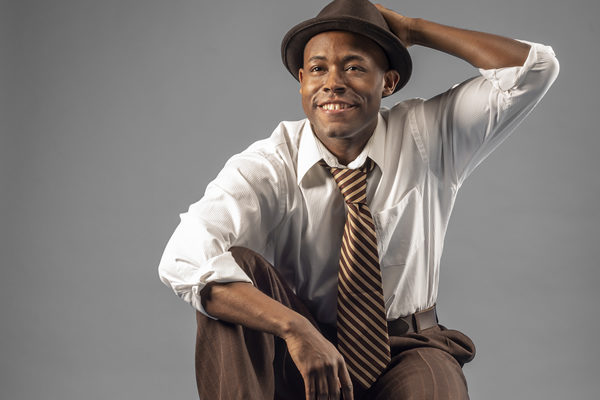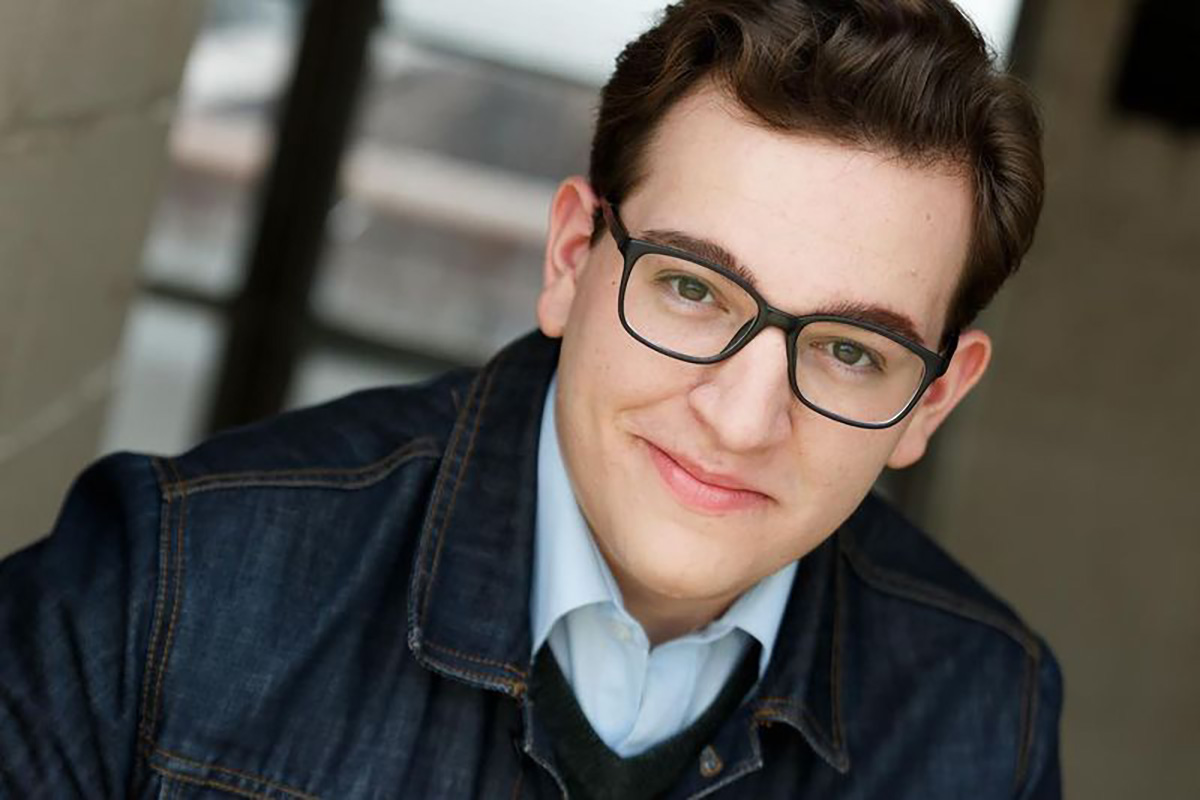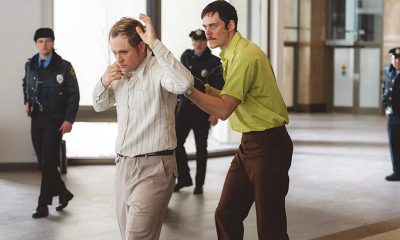Theater
SPRING ARTS 2020: Symphonies, opera, Gay Men’s Chorus and more on spring slate
Out British pianist Stephen Hough to play, present essay book mid-April


With spring comes a rush of exciting theater. Options abound.
Through April 12, Arena Stage (1101 6th St., S.W.), presents out Cuban-American playwright Eduardo Machado’s “Celia and Fidel.” Machado’s new play imagines a conversation between Cuba’s most influential female revolutionary and its most notorious political leader in a contest between morality and power. Arena’s out artistic director Molly Smith directs. Details at arenastage.org.
Ford’s Theatre (511 10th St., N.W.) is marking spring with “Guys and Dolls” (March 13-May 20), composer Frank Loesser’s classic 1950s musical comedy drawn from Damon Runyon’s slangy short stories set in Prohibition-era Broadway. Peter Flynn directs. Details at fordstheatre.org.
At Signature Theatre (4200 Campbell Ave., Arlington), out artistic director Eric Schaeffer stages “Camille Claudel” (March 24-April 19), a world premiere by librettist Nan Knighton and composer Frank Wildhorn. In turn-of-the-century Paris, groundbreaking artist and freethinker Camille struggles to shake the shadow of the powerful men in her life — a famous overbearing brother, and her lover, genius sculptor Auguste Rodin. The cast includes Broadway’s Teal Wicks in the title role and handsome Hugh Panaro as Rodin.
Also, at Signature, out theater practitioners, playwright Norman Allen and director Joe Calarco, reunite for a reprise of “Nijinsky’s Last Dance” (April 14-May 24). Famed early 20th century Russian ballet great Vaslav Nijinsky inhabits characters from his past, as “he journeys from his Imperial Ballet School acceptance at age 10, to his relationship with mentor and lover Sergei Pavlovich Diaghilev, to his innovative choreography that shocked a world in tumult from the Great War.” Details at sigtheatre.org.
Tyson’s 1st Stage (1524 Spring Hill Rd., Tysons, Va.) presents out composer William Finn’s inspiring and funny musical “A New Brain” (March 26-April 19). Based on Finn’s experience with a life-threatening brain condition, it’s the story of frustrated young composer Gordon Schwinn (Aaron Bliden) whose scary brush with mortality leads him to discover the healing power of art. Russell Rinker plays Gordon’s boyfriend Roger. Details at 1ststagetysons.org.
At Theater J (1529 16th St., N.W.), Naomi Jacobson repeats her star turn as sexpert Dr. Ruth Westheimer in Mark St. Germain’s “Becoming Dr. Ruth” (March 27-April 19). Out director/actor Holly Twyford stages the one-woman play. Details at theaterj.org.
Olney Theatre Center (2001 Olney-Sandy Spring Rd., Olney, Md.) presents “The Humans” (April 1-May 3), the brilliant family drama by out playwright Stephen Karam. Winner of the 2016 Tony Award for Best Play, Karam’s play puts the spotlight on an unraveling, working class family as they gather for Thanksgiving in one of the adult daughter’s dingy new apartment in Manhattan’s Chinatown. Aaron Posner directs. Details at olneytheatre.org.
D.C.’s Mosaic Theater Company (Atlas Performing Arts Center, 1333 H St., N.E.) plans an ambitious world premiere staging of a three-play cycle following the life and legacy of Emmett Till, the young African-American boy whose lynching in part set off the civil rights movement. “The Till Trilogy” (April 1-June 21), written by Ifa Bayeza and directed by Talvin Wilks, consists of “The Ballad of Emmett Till,” “That Summer in Sumner” and “Benevolence.” The cast includes out actors Vaughn Ryan Midder as Emmett and Jaysen Wright. Details at mosaictheater.org.
At Quotidian Theatre Company (The Writer’s Center, 4508 Walsh St., Bethesda, Md.) out actor David Dubov plays uptight, judgmental Pastor Manders in Henrik Ibsen’s masterpiece “Ghosts” (April 3-26). Details at quotidiantheatre.org.
In Penn Quarter, Woolly Mammoth Theatre Company (641 D St., N.W.) presents Paola Lázaro’s new work “There’s Always the Hudson” (April 6-May 3). T and Lola, a pair of sexual abuse survivors who meet through a support group (played respectively by talented out actor Justin Weaks and Lázaro, the drama’s author) make a pact to exact revenge on everyone who’s hurt them. Jess McLeod directs. Details at woollymammoth.net.
April is Broadway at the Kennedy Center with the 50th anniversary production of “Jesus Christ Superstar” (April 14-26), the rock opera with music by Andrew Lloyd Webber and lyrics by Tim Rice. Also slated is the infectiously fun, Broadway musical classic “Bye Bye Birdie” (April 23-27). Details at kennedy-center.org.
With inimitable physicality, Synetic Theater (1800 South Bell St., Chrystal City) presents a radically reimagined version of Calderon’s Spanish classic “La Vida es Sueno” (April 22-May 17) starring out actor Alex Mills. Next, Helen Hayes Award-winning out actor Phillip Fletcher plays Florinda in the farce “Servant of Two Masters” (June 20- July 12). Details at synetictheater.org.
At Rep Stage (10901 Little Patuxent Pkwy, Columbia, Md.), out director Rick Hammerly is helming “Dames at Sea,” (April 30–May 17), a takeoff on legendary Busby Berkeley’s kaleidoscopic musicals. The 1968 Off-Broadway hit follows young Ruby as she taps her way from midwestern anonymity to B stardom. Music by Jim Wise. Details at repstage.org.
Later this spring, Studio Theatre (1501 14th St., N.W.) presents “Fun Home” (May 13-June 21) the marvelous queer coming-of-age musical set against life in a funeral home. Based on the graphic memoir by out cartoonist Alison Bechdel (first known for the long-running comic strip “Dykes to Watch Out For”) the marvelous, Tony Award-winning work boasts music by Jeanine Tesori and book/lyrics by Lisa Kron. Studio’s David Muse directs. Details at studiotheatre.org.
At Rorschach Theatre (Atlas Performing Arts Center, 1333 H St., N.E.), Jenny McConnell Frederick directs Georgette Kelly’s “F*ck la vie d’artiste,” (May 22-June 14). Set in France in 2005, it’s the story of an aspiring French-Moroccan artist, who ekes out a living giving tours of the room where Vincent Van Gogh died. But when Vincent’s ghost begins to speak to her, she finds herself torn between her art and her love interest, an American woman named Avery. Details at rorschachtheatre.com.
And at Spooky Action Theater (1810 16th St., N.W.), it’s gay playwright Jordon Harrison’s “Maple and Vine” (June 4-28). While forsaking cell phones and sushi for cigarettes and chicken à la king, two miserable 21st century urbanites seek salvation via an idealistic community that exists in a permanent state of 1955. Stevie Zimmerman directs. Details at spookyacitontheater.org.
Theater
Out dancer on Alvin Ailey’s stint at Warner Theatre
10-day production marks kickoff of national tour

Alvin Ailey American Dance Theater
Through Feb. 8
Warner Theatre
513 12th St., N.W.
Tickets start at $75
ailey.org
The legendary Alvin Ailey American Dance Theater is coming to Washington’s Warner Theatre, and one of its principal veterans couldn’t be more pleased. Out dancer Renaldo Maurice is eager to be a part of the company’s 10-day stint, the kickoff of a national tour that extends through early May.
“I love the respectful D.C. crowd and they love us,” says Maurice, a member of esteemed modern dance company for 15 years. The traveling tour is made of two programs and different casting with Ailey’s masterwork “Revelations” in both programs.
Recently, we caught up with Maurice via phone. He called from one of the quiet rooms in his New York City gym where he’s getting his body ready for the long Ailey tour.
Based in North Newark, N.J., where he recently bought a house, Maurice looks forward to being on the road: “I enjoy the rigorous performance schedule, classes, shows, gym, and travel. It’s all part of carving out a lane for myself and my future and what that looks like.”
Raised by a single mother of three in Gary, Ind., Maurice, 33, first saw Alvin Ailey as a young kid in the Auditorium Theatre in downtown Chicago, the same venue where he’s performed with the company as a professional dancer.
He credits his mother with his success: “She’s a real dance mom. I would not be the man or artist I am today if it weren’t for the grooming and discipline of my mom. Support and encouragement. It’s impacted my artistry and my adulthood.”
Maurice is also part of the New York Ballroom scene, an African-American and Latin underground LGBTQ+ subculture where ball attendees “walk” in a variety of categories (like “realness,” “fashion,” and “sex siren”) for big prizes. He’s known as the Legendary Overall Father of the Haus of Alpha Omega.
WASHINGTON BLADE: Like many gay men of his era, Ailey lived a largely closeted public life before his death from AIDS-related complications in 1989.
RENALDO MAURICE Not unusual for a Black gay man born during the Depression in Rogers, Texas, who’s striving to break out in the industry to be a creative. You want to be respected and heard. Black man, and Black man who dances, and you may be same-sex gender loving too. It was a lot, especially at that time.
BLADE: Ailey has been described as intellectual, humble, and graceful. He possessed strength. He knew who he was and what stories he wanted to tell.
MAURICE: Definitely, he wanted to concentrate on sharing and telling stories. What kept him going was his art. Ailey wanted dancers to live their lives and express that experience on stage. That way people in the audience could connect with them. It’s incredibly powerful that you can touch people by moving your body.
That’s partly what’s so special about “Revelations,” his longest running ballet and a fan favorite that’s part of the upcoming tour. Choreographed by Alvin Ailey in 1960, it’s a modern dance work that honors African-American cultural heritage through themes of grief, joy, and faith.
BLADE: Is “Revelation” a meaningful piece for you?
MAURICE: It’s my favorite piece. I saw it as a kid and now perform it as a professional dance artist. I’ve grown into the role since I was 20 years old.
BLADE: How can a dancer in a prestigious company also be a ballroom house father?
MAURICE: I’ve made it work. I learned how to navigate and separate. I’m a principal dancer with Ailey. And I take that seriously. But I’m also a house father and I take that seriously as well.
I’m about positivity, unity, and hard work. In ballroom you compete and if you’re not good, you can get chopped. You got to work on your craft and come back harder. It’s the same with dance.
BLADE: Any message for queer audiences?
MAURICE: I know my queer brothers and sisters love to leave with something good. If you come to any Ailey performance you’ll be touched, your spirit will be uplifted. There’s laughter, thoughtful and tender moments. And it’s all delivered by artists who are passionate about what they do.
BLADE: Alvin Ailey has been a huge part of your life. Thoughts on that?
MAURICE: I’m a believer in it takes a village. Hard work and discipline. I take it seriously and I love what I do. Ailey has provided me with a lot: world travel, a livelihood, and working with talented people here and internationally. Alvin Ailey has been a huge part of my life from boyhood to now. It’s been great.
Theater
Swing actor Thomas Netter covers five principal parts in ‘Clue’
Unique role in National Theatre production requires lots of memorization

‘Clue: On Stage’
Jan. 27-Feb. 1
The National Theatre
1321 Pennsylvania Ave., N.W.
thenationaldc.com
Out actor Thomas Netter has been touring with “Clue” since it opened in Rochester, New York, in late October, and he’s soon settling into a week-long run at D.C.’s National Theatre.
Adapted by Sandy Rustin from the same-titled 1985 campy cult film, which in turn took its inspiration from the popular board game, “Clue” brings all the murder mystery mayhem to stage.
It’s 1954, the height of the Red Scare, and a half dozen shady characters are summoned to an isolated mansion by a blackmailer named Mr. Boddy where things go awry fairly fast. A fast-moving homage to the drawing room whodunit genre with lots of wordplay, slapstick, and farce, “Clue” gives the comedic actors a lot to do and the audience much to laugh at.
When Netter tells friends that he’s touring in “Clue,” they inevitably ask “Who are you playing and when can we see you in it?” His reply isn’t straightforward.
The New York-based actor explains, “In this production, I’m a swing. I never know who’ll I play or when I’ll go on. Almost at any time I can be called on to play a different part. I cover five roles, almost all of the men in the show.”
Unlike an understudy who typically learns one principal or supporting role and performs in the ensemble nightly, a swing learns any number of parts and waits quietly offstage throughout every performance just in case.
With 80 minutes of uninterrupted quick, clipped talk “Clue” can be tough for a swing. Still, Netter, 28, adds, “I’m loving it, and I’m working with a great cast. There’s no sort of “All About Eve” dynamic going on here.”
WASHINGTON BLADE: Learning multiple tracks has got to be terrifying.
THOMAS NETTER: Well, there certainly was a learning curve for me. I’ve understudied roles in musicals but I’ve never covered five principal parts in a play, and the sheer amount of memorization was daunting.
As soon as I got the script, I started learning lines character by character. I transformed my living room into the mansion’s study and hallway, and got on my feet as much as I could and began to get the parts into my body.
BLADE: During the tour, have you been called on to perform much?
NETTER: Luckily, everyone has been healthy. But I was called on in Pittsburgh where I did Wadsworth, the butler, and the following day did the cop speaking to the character that I was playing the day before.
BLADE: Do you dread getting that call?
NETTER: Can’t say I dread it, but there is that little bit of stage fright involved. Coming in, my goal was to know the tracks. After I’d done my homework and released myself from nervous energy, I could go out and perform and have fun. After all, I love to act.
“Clue” is an opportunity for me to live in the heads of five totally different archetype characters. As an actor that part is very exciting. In this comedy, depending on the part, some nights it’s kill and other nights be killed.
BLADE: Aside from the occasional nerves, would you swing again?
NETTER: Oh yeah, I feel I’m living out the dream of the little gay boy I once was. Traveling around getting a beat on different communities. If there’s a gay bar, I’m stopping by and meeting interesting and cool people.
BLADE: Speaking of that little gay boy, what drew him to theater?
NETTER: Grandma and mom were big movie musical fans, show likes “Singing in the Rain,” “Meet Me in St. Louis.” I have memories of my grandma dancing me around the house to “Shall We Dance?” from the “King and I” She put me in tap class at age four.
BLADE: What are your career highlights to date?
NETTER: Studying the Meisner techniqueat New York’sNeighborhood Playhouse for two years was definitely a highlight. Favorite parts would include the D’Ysquith family [all eight murder victims] in “A Gentleman’s Guide to Love & Murder,” and the monstrous Miss Trunchbull in “Matilda.”
BLADE: And looking forward?
NETTER: I’d really like the chance to play Finch or Frump in Frank Loesser’s musical comedy “How to Succeed in Business Without Really Trying.”
BLADE: In the meantime, you can find Netter backstage at the National waiting to hear those exhilarating words “You’re on!”
Theater
Voiceless ‘Antony & Cleopatra’ a spectacle of operatic proportions
Synetic production pulls audience into grips of doomed lovers’ passion

‘Antony & Cleopatra’
Through Jan. 25
Synetic Theater at
Shakespeare Theatre Company’s Klein Theatre
450 7th St., N.W.
Synetictheater.org
A spectacle of operatic proportions, Synetic Theater’s “Antony & Cleopatra” is performed entirely voiceless. An adaptation of the Bard’s original (a play bursting with wordplay, metaphors, and poetic language), the celebrated company’s production doesn’t flinch before the challenge.
Staged by Paata Tsikurishvili and choreographed by Irina Tsikurishvili, this worthy remount is currently playing at Shakespeare Theatre Company’s Klein Theatre, the same venue where it premiered 10 years ago. Much is changed, including players, but the usual inimitable Synectic energy and ingenuity remain intact.
As audiences file into the Klein, they’re met with a monumental pyramid bathed in mist on a dimly lit stage. As the lights rise, the struggle kicks off: Cleopatra (Irina Kavsadze) and brother Ptolemy (Natan-Maël Gray) are each vying for the crown of Egypt. Alas, he wins and she’s banished from Alexandria along with her ethereal black-clad sidekick Mardian (Stella Bunch); but as history tells us, Cleopatra soon makes a triumphant return rolled in a carpet.
Meanwhile, in the increasingly dangerous Rome, Caesar (memorably played by Tony Amante) is assassinated by a group of senators. Here, his legendary Ides of March murder is rather elegantly achieved by silver masked politicians, leaving the epic storytelling to focus on the titular lovers.
The fabled couple is intense. As the Roman general Antony, Vato Tsikurishvili comes across as equal parts warrior, careerist, and beguiled lover. And despite a dose of earthiness, it’s clear that Kavsadze’s Cleopatra was born to be queen.
Phil Charlwood’s scenic design along with Colin K. Bills’ lighting cleverly morph the huge pyramidic structure into the throne of Egypt, the Roman Senate, and most astonishingly as a battle galley crashing across the seas with Tsikurishvili’s Antony ferociously at the helm.
There are some less subtle suggestions of location and empire building in the form of outsized cardboard puzzle pieces depicting the Mediterranean and a royal throne broken into jagged halves, and the back-and-forth of missives.
Of course, going wordless has its challenges. Kindly, Synectic provides a compact synopsis of the story. I’d recommend coming early and studying that page. With changing locations, lots of who’s who, shifting alliances, numerous war skirmishes, and lack of dialogue, it helps to get a jump on plot and characters.
Erik Teague’s terrific costume design is not only inspired but also helpful. Crimson red, silver, and white say Rome; while all things Egyptian have a more exotic look with lots of gold and diaphanous veils, etc.
When Synetic’s voicelessness works, it’s masterful. Many hands create the magic: There’s the direction, choreography, design, and the outrageously committed, sinewy built players who bring it to life through movement, some acrobatics, and the remarkable sword dancing using (actual sparking sabers) while twirling to original music composed by Konstantine Lortkipanidze.
Amid the tumultuous relationships and frequent battling (fight choreography compliments of Ben Cunis), moments of whimsy and humor aren’t unwelcome. Ptolemy has a few clownish bits as Cleopatra’s lesser sibling. And Antony’s powerful rival Octavian (ageless out actor Philip Fletcher) engages in peppy propaganda featuring a faux Cleopatra (played by Maryam Najafzada) as a less than virtuous queen enthusiastically engaged in an all-out sex romp.
When Antony and Cleopatra reach their respective ends with sword and adder, it comes almost as a relief. They’ve been through so much. And from start to finish, without uttering a word, Kavsadze and Tsikurishvili share a chemistry that pulls the audience into the grips of the doomed lovers’ palpable passion.




















